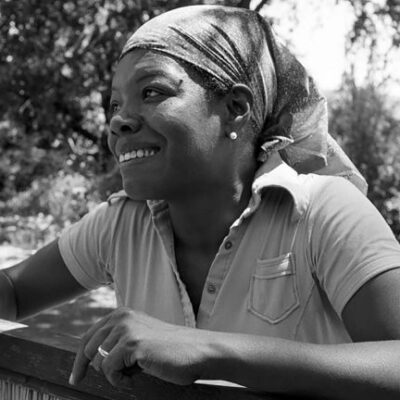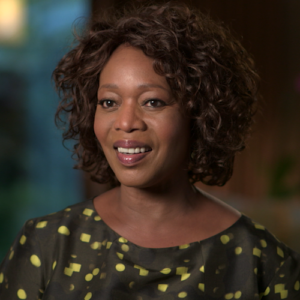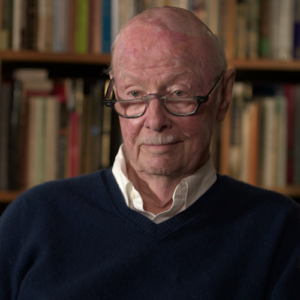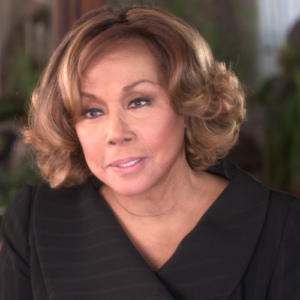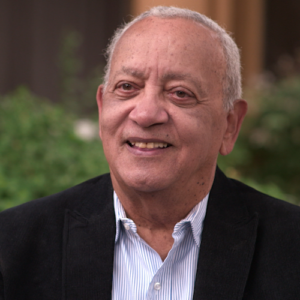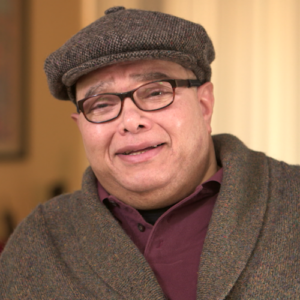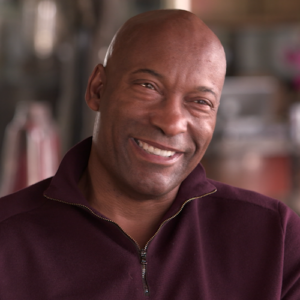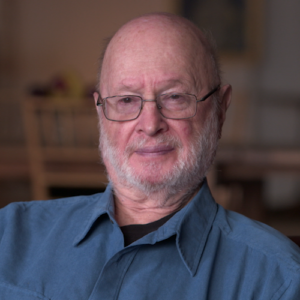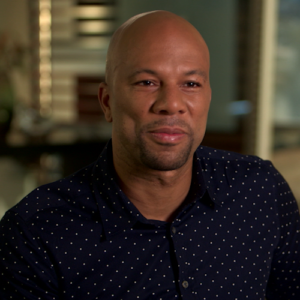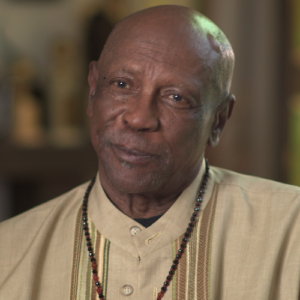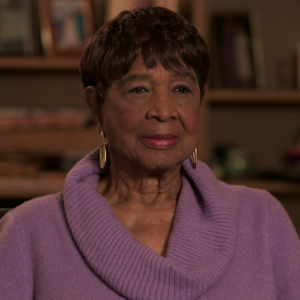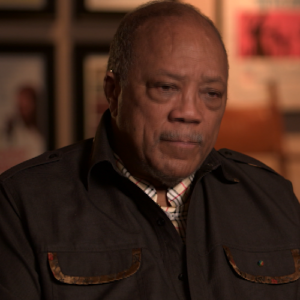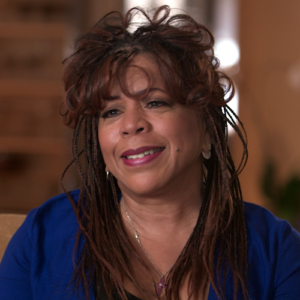Interviewer: What I first want to ask you is how did you come to meet Maya Angelou? And as you give me answers to questions. What I’m really looking for is my question inside of the answer, since I will never be on my voice. Okay. And to contextualize us in the country or the place of the time period. And I can come back with questions to make sure that happens. Okay. But how did you first come to meet Maya Angelou.
Alice Windom: And that Maya in Accra, Ghana, in 1963 when she moved to Ghana from Cairo, Egypt, where she had been working. She stayed with a South African friend of the person she had been living with in Cairo. And her intention was just to put her some guy into the University of Ghana at Legon and continue on to Liberia. She had met President William V.S. Tubman while she was in Egypt. She was a good friend of people in the Liberian embassy. So when President Tubman came there, she met him, and whatever she did, it impressed him enough to offer her employment in Liberia if she wanted to come there. So she was just en route to Liberia when she stopped in Ghana, oh, a few days after she arrived.
Interviewer: Before you go there, describe what Ghana was like at the time she came. It’s 1960.
Alice Windom: 63.
Interviewer: How does it look? Who’s there in the group of of ex-Patriots? Who’s there? What is the say?
Alice Windom: Well, Ghana was exciting at that time. It acquired income with the president. And he projected the African personality. He had studied at Lincoln University in the United States. So he knew many people here. He was quite familiar with African Americans. And he had sort of extended an invitation for African Americans to come. And he had invited our most illustrious scholar, Dr. W.E.B. Dubois, to move there with his wife, Shirley Graham Dubois, and to work on the Encyclopedia Africa, which would have been the first major scholarly production about the entire continent of Africa conceived and written by Africans. So Dr. DuBois’s exit from the U.S. had kind of encouraged me. I’d been thinking about it for a long time, but that encouraged me to really leave here. And I arrived in Ghana in 1962, late in the year. There were a number of African Americans there at the time, and more came during the two years that I stayed there. And I would divide them into about four groups. First, there were the people who were economically secure. They worked for the American embassy. Then there was the Peace Corps volunteers. There were quite a few. Peace Corps was new then, and there were already quite a few Peace Corps volunteers in Ghana. There was a group of African American businessmen who were running fairly substantial businesses in Ghana. Two guys from California had the all Afro electric company. They manufactured electrical appliances. They did construction work, put installing electrical appliances and systems. All there were. There was Thom Browne who owned an air conditioning company. There was Mr. Gardner, who, with a Ghanaian partner named Tamika Little, had a plumbing business. And there was several other people who had good skills that they had learned in the States, and they had gone to Ghana to implement and do things there that they could not do here as black money and they would not have those opportunities. And then there were there was a small group of artists who were mainly inspired by their artistic interests, and they did sculpture, painting, jewelry making, and they learned African techniques and they really benefited from having the African canvas to work on. Then the group that I would identify myself with was the political people who had been active in civil rights struggles here in. The States and we’re pretty much fed up and needed to get out of this country and go someplace where we could make a little contribution to black people developing our country. So we were very excited to be in government.
Interviewer: So under that context, Maya Angelou comes to Ghana, enroute to.
Alice Windom: Liberia.
Interviewer: And you meet her. So take me there.
Alice Windom: Okay. Of the person, the South African guy she was staying with was the person I was dating at the time. And so that was how I met her. Within days of her arrival. And maybe they had been there for a week or so. Maybe a little longer.
Interviewer: They’d be.
Alice Windom: Gone. Admire her, son.
Interviewer: I’ll start that over so I don’t step on.
Alice Windom: Okay. Oh, see, I don’t think had been there as long as two weeks with her son, who she intended to put into the university and a group of us South Africans. And a few of the women that worked at the embassy and a few friends from other parts of Africa were going on a picnic to Cape Coast, which was some miles away. So two or three parts of us went and God came with us. Maya stayed in the capital city of Accra. And after we had a lovely picnic on the beach and really enjoyed ourselves in Cape Coast, I was in the first car coming back to town. So we came back to John MacDonald’s apartment and sat around with Maya and Janet talking. And several minutes pass and my eyes started to get concerned because God was not yet back. And. And I said, Oh, it’ll be okay. They may have stopped somewhere, but more too much time passed. And then there was a knock on the door, and I opened the door to see the wife of the man who owned the car. That guy had ridden, all covered with little cuts all over her face and arms and no blood running, but blood in all these cuts. So I knew that was a shattered windshield Back in those days, windshields really shattered. And that was why she had all those cuts. And she told me that they had been an accident and I was already in the hospital. So she had come to get Maya to take her to the hospital.
Interviewer: How did Maya Angelou react to that news?
Alice Windom: Well, as a mother with one.
Interviewer: Child, with this woman at the door.
Alice Windom: Yeah, Yeah.
Interviewer: Take me there.
Alice Windom: Well, it would be hard. This is not 50 years ago, so to we can’t anything recount anything that she said, I wouldn’t be able to do that, which is a very concerned mother. And all she wanted to do was get right to the hospital, which we did. The only thing they told her at that time was a guy had a broken leg and so he was in a bed and they had already put his leg in a casket, had already been set. And thank goodness his leg was broken because we didn’t find out until the next day when Dr. M Olivia Cordero, a Puerto Rican wife of an African American writer and actor Julian Mayfield, When she came to the hospital and examined guy, she found out that his neck was broken.
Interviewer: Take me back. She was a physician. Yes. Yes. Take me back just a little bit and tell me who she was. Go ahead.
Alice Windom: Dr. M Olivia Cordero, a part of the Puerto Rican wife of an African American actor and writer, Julian Mayfield. They lived had been living in Ghana by that time for about two years. And she when she came to the hospital and a Sam and guy, Dr. Cordero discovered that his neck was broken. If the after leg had not been broken, he might have been up and trying to walk around and being in much worse shape because they did not discover that its neck was fractured. Oh. Now, you know, Guy, as you know, guy’s in a wheelchair. Now, the injury that he sustained in that accident caused a degenerative neurological condition which has gradually worsened over the years so that now he is in a wheelchair. But because of that injury to him, Maya decided right away that she was not going to go to Liberia, that she would stay in Ghana and take care of Guy, which meant that she had to find employment. She decided to move into the YWCA hostel where I was already living and oh, which so that she would exit. From McConnell’s apartment and stay at the Y And also the YWCA hostel in those days was a place for women to stay. There were women from other parts of Ghana and other parts of Africa, and also tourists would stay there. So when I got to Ghana in 62, the only thing I had arranged was a place to stay. I had a room at that hostel. Eventually a woman named Victoria Garvin, who was a labor union activist from New York, quite well known, who had been working in Nigeria with one of the political figures there, came to Ghana and Vickie moved into the Y. They raised our rents. I think they were raising the women twice in one month and told Vickie and Maya and I decided we should move out of there. And we looked for a house and we found a house o close to the Y where we could each have a bedroom and it was a two storey house with the landlord living upstairs and renting out the downstairs. So we moved into that house and and stayed there for several months. Vickie was the first one to leave in 1964. She had been teaching English at the Chinese Embassy and they had just fallen in love with her and they invited her to come to China and teach English at the Foreign Language Institute in Shanghai. So she made arrangements for I think a family came to meet her in London because at that time it was against the law to use an American passport to go to China. This was before President Nixon went to play ping pong and opened up an avenue for Americans to visit China. So Vicki was gone. I knew that I couldn’t hang on much too much longer because I couldn’t find steady good employment, that we were so broke between the three of us. We had about eight or nine jobs of part time stuff, and we just could not earn enough money to sustain life. Much as I love living in Ghana. Oh, I told friends of mine who were working in Ethiopia at the United Nations Economic Commission for Africa to help me get a job there, and they did. So I left in September of 64. Vicky was already gone. That left Maya in the house by herself. I’m not quite sure how she managed to trip and everything after we, the two of us, left, but she also left in September on her way to Europe and I went to Nigeria from Accra, visited there for a week, and then went to northern Nigeria and caught a plane that landed in Kano. In Kano. Coming from Accra, my Gillian Mayfield. And that boy and Olivia Cordero, his wife, were on that plane. So we all traveled to Cairo looking to meet Malcolm.
Interviewer: So before we go to Malcolm, take me back. You and Maya Angelou and this other woman, Vicki, live in Ghana together more. How long is Maya? What is she doing? How is she working? How is she checking on Guy? What is her life like doing? Okay.
Alice Windom: Maya Angelou was working out several jobs then. We all had all these little part time jobs. So she was doing some translations. She was would write occasionally. And I think she had she was working at the university. Oh, she eventually did put God into the university. When he recovered enough to go to school, he did enter the University of Ghana. And though Maya was scuffling, I don’t remember whether she was teaching English. I know I gave private English lessons and took in typing just little scummy stuff to just earn some money. Oh. She also got involved in the arts community in Ghana because she was an actress, so she appeared in some plays in Ghana. She became very close friends with F was Sutherland, who was the best known female playwright in Ghana at the time. She was very well known, author of several books for children, and she and I became very close friends. So she was well known. Maya was very well known in Ghana for she was extremely tall in those days to have a woman six feet tall. That was very uncommon. So everybody knew her. She had a little Fiat 500 or 600 that she drove. She called it her covered bicycle. It was a tiny little thing. But she got all over her and everybody knew her as the owner of that car. She also liked to entertain. So we had parties at the house. She was a wonderful hostess, excellent cook. And so we drew people of all nationalities. Ghanaians, people from other African countries, Europeans, everybody came to the house. We had a nice large living room, dining room area. So it was good for entertaining. And we just hustled and got got the little money we could get. But it just was not enough. We could not say anybody had a career there. And the the opportunities for Well-compensated Employment were extremely limited.
Interviewer: Now I want to go back a little bit before we get to Malcolm X and she comes to Ghana with Guy in 1963.
Alice Windom: That’s correct.
Interviewer: And. But she stays. And when she stays and there’s the parties and there are these kind of things going. Do you all talk at all about Vous McKee and the fact that her common law, marriage or whatever has broken up and she’s now out there and that was a reason for her coming as well?
Alice Windom: Yes, she did talk about vous and vous came together, met vous in Ghana. He came in down. That’s 63. Oh, he was there at the time that two boys died, which is August of 1963. So he came through there the same year that she came. And he stayed a while. He was working for the Pan-Africanist Congress, the South African Freedom Movement. And so he had been the representative in Egypt. And I’m sure when he came to Ghana, he was on party business because it was a Pan-Africanist Congress group resident in Ghana. You had South African exiles all over the continent in those days. So. Oh, yes, Yes. She was south. She had learned a lot from vous vous. She said he was an astute, brilliant politician, a brilliant guy all around, a lovable personality. But they they could not sustain the relationship.
Interviewer: What what did she say as to why they couldn’t sustain?
Alice Windom: Well, he became unfaithful and that and she just wouldn’t tolerate that.
Interviewer: How did. I’m sure I don’t know if she said this, but did she miss him? Did she want the relationship back or was she down?
Alice Windom: I had no impression that she wanted the relationship back. I thought I felt she still respected him. She was still very concerned about the South African freedom movement and his role in it. But she had moved on. As far as romantic interest was concerned, she always attracted men, so she was not pining for loose.
Interviewer: Let me know about some of the taking care of guy during that time, because obviously it was a long road back from what happened to him. And I just kind of want to go back once she understood, because she told us that people told her he would never walk again, that all of this. And she was like, no, that’s not going to happen. He’s going to walk. He’s going to get out of here. She remembers when his toes first moved. Do you remember anything of her taking care of him now?
Alice Windom: Guy never lived with us. That was in the hospital for some time. Most of her visits to guide and taking care of him took place outside of the house. And I was not with her. But that guy was about 18. He was young, strong, healthy. Aside from the accident, he was on his feet fairly fast, considering how severely he had been injured but did see the once the leg healed, he had he wore one of those network collars. Oh, that held his hair direct, but he was up and moving. Yeah.
Interviewer: I think he was in a full body cast for three months or a from here to there for three months. And he talked about the heat at the time that every month they had to cut it off because of things growing.
Alice Windom: Must have been horrible. Because in the tropics and you don’t have air conditioning, it had to have been horrible. But as I say, considering the extent of the injury. What did he say about where he was, as he never lived with us? He had been in the hospital. I don’t know. I don’t remember.
Interviewer: He stayed.
Alice Windom: Where are you? That’s what I thought. That guy was in the hospital. So Lyle would be going back and forth.
Interviewer: So now. You’re in Ghana. You’ve had some parties people are getting grubbing by. And. You hear that? Malcolm X is coming to town. Can’t say. Coming to town, coming to the country. Tell me about that and how. How you Maya Angelou, how everybody reacted to that news and what that meant.
Alice Windom: Well, we knew from a friend in Nigeria, Professor S.E.A.L. Who had studied at the University of Chicago and had done his doctoral dissertation on the Nation of Islam. And the dissertation eventually was turned into a book called Black Nationalism The Search for an Identity in America. It’s still in print. Oh, and that was the second book published on the Nation of Islam. He did a very sensitive analysis of the organization, and he came to know Malcolm during his research. Oh. Malcolm came to Nigeria before he came to Ghana and SC and was teaching in Nigeria. He was back home in Nigeria by then, so he let me know that Malcolm was going to be coming to Ghana, but he didn’t know the date. So we were we hastily formed a committee because we wanted to make sure that he accomplished whatever it was he was coming for. And several times we went out to the airport and met planes that were coming from Nigeria, only to meet, as I used to say, in Ghana, we met his absence. Oh, So finally, when he came, we didn’t know that he had come on that plane, but we found out that he was there and we had already formed the Malcolm X Committee, Julian Mayfield, Maya Angelou, Vicki Garvin, Julian’s wife, and Olivia, a man named Frank Roberts and myself. We were the core of the committee of the committee. But when we got Malcolm, oh, we wanted to know if he would be willing to meet with African Americans there. And so we could just ask him questions. He could tell us what was going on in the States and what his plans were. And of course, he agreed. So we had a big gathering at the home of Julian and Olivia mayfield and had a really good session with him. And we got a chance to ask all the questions we wanted to. And we found out that his quest was to find an African government that would take the United Nations AU Genocide Convention and make a charge against the United States for genocide against African-American people. And he had not been successful yet in finding a government that would agree to do that. Let me say, Malcolm, travel alone today. You wouldn’t find anybody of his stature going anywhere without an entourage. His wife was not with him because they had small children. So Betty stayed in the state. He was absolutely by himself traveling. Oh. Which was quite courageous considering that the government really was after him. So. Oh, with Julian’s contacts, Julian was an editor of a magazine called The Spark, a political magazine that and grew and started. Oh, he made arrangements with the Press Club to hold a soiree and press conference for Malcolm. And, oh, we were able to. That’s the main thing Malcolm wanted was to meet President, and none of us had any kind of contact with the president. The only African-American there who did was Shirley Graham Dubois. The by that time the widow of W.E.B. Dubois, He had died in August of 63. And so we called her and asked her if she would arrange for President Nkrumah to meet Malcolm. And she said she would not do that. She would not make the introduction because Malcolm was just a rabble rouser. All she knew about him was what had been in the American press, which was uniformly negative. But she met him at the party that the Cuban ambassador gave from Malcolm. Malcolm was entertained at the Cuban Embassy and at the Chinese Embassy where Vicki was teaching English. And so Shirley met him. I think it was I’m pretty sure it was either the Cuban and the Chinese embassy party and fell in love with it. He was so engaging and charming that they just fell in love with each other and she invited them to her home for lunch, I think, the next day. And then she made the connection for him to meet with President and Chroma. Oh, a maya was at all of the events. We were all at all of the events where Malcolm spoke or was honored. He was treated like he was our head of state, like he was the president of African-America. And it was it was quite a successful trip for him. He spoke at the University of Ghana that was arranged by Leslie Lacy, an African-American who was teaching at the university. He spoke at the ideological institute that President Nkrumah had formed at Winneba, which was a few miles away from Accra, had a very successful visit. And at the conclusion of his visit, oh, we all went to the Ambassador Hotel where he admired Vicki Frank Roberts and Julia Mayfield in that and a young woman from Washington, D.C. We went to take him to the airport and there’s. Oh, people came to say goodbye to him and we saw him off. We were warning him to be careful because the government was out to kill him. He knew it was the Nation of Islam that he had to be concerned about. Well, we had been out of the States long enough to miss some of the nuances of what was happening. But we did warn him to be careful. He knew that the analysts coming and it was that long after that he did get a chance to see him again. We went to Cairo to try to meet with him and he was not in Cairo. But anyway, I’m getting ahead of that.
Interviewer: Still went to Cairo. Was it when you said we lost my my.
Alice Windom: Yeah. Julian Mayfield and Julian’s wife, Dr. Cordero. We met in Kano and I had been in Nigeria visiting and I met him in Kano when that plane landed there. Between that cry and Carol’s one of these big Russian illusion planes, they probably don’t fly those anymore. It was like you on a cargo plane. It had no amenities that you were used to with American flights. But it did the job. It landed safely in Cairo. And we found that Malcolm was not there. And so we just did what you do in Cairo. You go visit the pyramids, visit the museum. And since Maya had actually lived there, she had a number of friends. Oh, and we I got a chance to meet her good friends at the Liberian embassy who had introduced her to President Tubman. We had a dinner at their home. And so then when we parted, Julian and and Olivia, I think, went to Spain. Maya went somewhere in Europe. I’m not sure where she went, but she eventually came back to Ghana and was in Ghana for a few more months before she returned to the US, hoping to work with Malcolm in in the States. But she got here shortly before he was murdered, so she did not get a chance to see him after she returned to the US.
Interviewer: Very lovely. Thank you for all of that. Well, his message is, at that time you and I talked about. Do we need? No, we’re okay. Okay. When you and I spoke, we talked about why. African-Americans. In Ghana at the time. We’re engaged by Malcolm X. And one of the things that you told me about, which I’d like you to reiterate, was his message in advancing freedom. And it was a time of kowtowing which, which was not his position at all, which made him and his philosophies attractive, which you talk about.
Alice Windom: Yes. Malcolm was something new in leadership for us in the streets. And his position. Oh, he said everything that black people have been thinking and many were afraid to say or they had no real platform. But when he came out of prison and went into the Nation of Islam. Oh. In the community to work, he had become converted while he was in prison. And he had really taken the Honorable Elijah Muhammad as a strong father figure. And when he came out and gradually became the spokesperson for the Nation of Islam, he’s the one who built it up from probably a few hundred members around the country to thousands of people because he traveled for the nation. And he spoke clearly and he called on black men to come and be men, to start businesses, to take care of their families in a better style. Women were encouraged to be submissive and to be good help needs to their husbands. And it was certainly more attractive to the men than it was to the women that call. If a young woman came into the nation, she had her pick of men because there just weren’t that many young women joining. And so the ones who did join were swarmed practically. And I saw a lot of that because I was going into the temple to help my friend Etzion, who was doing the research at the time. Malcolm also was the embodiment of charisma. If you were India’s presence, you had to listen to him. I know the one time that I met him in Chicago when he spoke at Muhammad’s temple, he was about 4 hours late getting there. He had been somewhere else in the country doing the nation’s work. We sat there, oh, 4 hours longer than we had intended to be there before he came in. And it was late at night. But when he seemed to be French and when he started speaking, we all stand up and listen for another two or 3 hours. Oh, he outlined the problems that we faced in a way that people who didn’t read and study were not accustomed to seeing. And he galvanized people and loved him as the actor Ossie Davis said during his eulogy for Malcolm. He was our. Black shining manhood. Something that may be a paraphrasing. But men tend to accord that kind of status to other men saying that he represents that man. That’s something I’ve never heard a woman say, that another woman represents us as women. I’ve just never heard that. But I’ve heard men confer that honor on other men. And that’s what Malcolm did for black men.
Interviewer: You took a wonderful picture of Maya Angelou looking at Malcolm X, and you could see the reverence. Yes. For him. What did you observe between Maya Angelou and Malcolm? What? What did she talk about him. What was that? Well.
Alice Windom: Again, everybody fell in love with Malcolm and everybody fell in love with it. So they fell in love with each other. We had great conversations and we were always together. Either Maya and Vicki or Maya and I were together whenever Oh, oh, Malcolm was present. And we talk about politics, about he talked about his family. He was very concerned about his wife and his children. And we we talked about Africa. There was an effort to educate him more than he had been in the past about Africa. He had a number of ideas about Africa, but he really had not traveled in sub-Saharan Africa prior to this trip. He had been in the Middle Eastern part of Africa. Oh, and I think he had already been to Mecca by then. So he knew much more about that north eastern part of Africa than he did about West Africa. So he was interested in the culture. And we had a little bit of knowledge having lived in West Africa for a while. So those were the kinds of conversations we had. And also what he was trying to do, if he was successful in getting the US charged before the United Nations, what would he be doing next? He was out of the Nation of Islam by now. So he had two different organizations. He had, oh, the mosque in New York for his religious ministry. And he had the Organization of Afro-American Unity, which was going to be his political wing. We were interested in the political ring and not in the ministry wing. Oh, so he spent some time telling us what things he would want us to do in Africa to represent the OAU. And that was what we wanted more information about when if we had been successful in meeting him in Cairo, I was the only one out of that group, I think, who ever saw Malcolm again. Because when I went to Ethiopia, oh, right at the end of September of 64, after we had failed to meet him in Cairo and I started my job with the U.N., I stayed in the hotel for quite a long time. Malcolm walked into the dining room of the hotel one night while I was having dinner again all by himself, and I said, Which Julian and Maya, and I’m a Libyan. I was just in Cairo looking for you. He had been traveling in East Africa. Oh, but he wanted to meet with Emperor Haile Selassie, and he asked me if I could help him meet him. I had been there all of like three days. I didn’t know anybody who was even three persons removed from Emperor Haile Selassie. So there was no help I could do for him. He left. He was there for a few days. And then he went back to East Africa. And he the only letter I ever got from I am still saying he was coming back to Ethiopia. And he really did want me to try to help him meet Selassie. And so he came back and he was there for a few days. And of course, he the reason he couldn’t meet Selassie, even though he had tried, not just through me, he had other contacts. It was highly Selassie was a client of the United States, and they would not want him to meet with Malcolm. So he would. That was the end of that. And so that part of Malcolm’s trip was not successful. In fact, he couldn’t get any African government, including Kwame Nkrumah, go to bring any charge against the US. Oh, because of the money. The cash.
Interviewer: Tell me, after that point, did you and Maya Angelou talk again about Malcolm after this assassination, any of that? Did you all have any more conversations?
Alice Windom: Well, actually, oh. We will be talking long distance phone calls because I was still in Africa. Oh, my. I had returned to the U.S. We had no conversations. I was in Africa for ten years. I never called home because the money that it would have cost to do that was extraordinary. But when we were together, once I had returned to the States and we were back in communication, yes, I found out she was devastated by that. We all were. I mean, everybody who knew Malcolm was absolutely prestige straight that once he was murdered, the brutality of it, even though we knew from him that he was expecting it, it was devastating. And I had planned to work with him. So it had to be even worse for her back in the States with that plan in her mind when she came back that she would be working with you.
Interviewer: She maintained and formed a good relationship with Betty Shabazz. Yes. Do you know anything about that relationship? And maybe when you came back, did all of you get to know?
Alice Windom: Oh, yeah. Yeah. Maya was close to Betty and to the girls. Oh, that was a good woman. She was not a political person. She met Malcolm. She became more political, but she had not been pleased. And I don’t think any woman with four children. The twins were born after Malcolm was killed. We’re very pleased with her husband working in a way that brought government negative attention to him. Oh, so she was not fond of the movement that Malcolm was a part of. She was a very determined woman. She got herself educated up to the doctorate level to take care of those children. And she and Maya remained close. And I got to know Betty, too. We liked each other. And she came in 1983, 20 years after the march on Washington. I pulled together a reunion of people who had been in Ghana. O during the incredible years, many of whom were back in the States by then because they had left Ghana after the coup that overthrew Kwame Nkrumah in 1966. And we met in Washington, D.C. Betty Ann and Maya both came to the reunion, but they left to go to the march that commemorated the 20th anniversary. So they weren’t able to spend the whole reunion with us. We were there for a couple of days, and Betty enjoyed herself. She came to Saint Louis. She spoke here at a convention of the Black Nurses Association. And another time or two when groups had invited her to speak. So I got a chance to see her quite a bit. Maya was one of the few people who had known Malcolm that Betty allowed around their daughters. She did not make it. Those girls available? Oh, to meet with people who were in the movement. She had quite a bit of resentment against the movement. And in fact, when you look at Eliza, CBS’s book, she talks about how the book title is Growing Up X. That’s Malcolm’s third daughter. I believe she’s the third girl. And she talks about how mother kept the children away from people who had been involved in the movement.
Interviewer: When we get to the. That whole time in Ghana. And you and I talked about this and you may have some more memories now, but I remember Dr. Angelo saying she wasn’t as welcome as she wanted to be. She didn’t feel as blended into the society. And she maybe came with wanting the open arms of various communities. That didn’t happen. But you say you saw a lot of love for her and you mentioned that it could be that foreigner thing that happens when you talk a little bit about that.
Alice Windom: Yes. When you told me that she had expressed that kind of feeling, the only thing I could think of was that there is a certain amount of estrangement that people feel when they move into a new society and try to cement themselves. That’s all I could think of because I was surprised to hear that she had told you that she did not feel as fully welcomed as she wanted, because I thought that people embraced her there at all levels.
Interviewer: So what you found was that there seemed to be a blending in and it was just the normal kind of getting into a foreign society.
Alice Windom: I’m thinking that could have been and she may have had something more specific on her mind. But my guess is that it was that because Ghanaians are quite hospitable. I have lived in three African countries. I can say they were the most hospitable people around. But there is also the complication of being a single woman moving into any of these societies that, oh, they may be a little distance because if you are a mature person, the expectation is that you will be married. And so the there might have been a wider acceptance or what looked like better acceptance if we had been married. But it never it never bothered me. I just I knew too many people who had migrated and had been exiled. And to expect that I would settle in and feel like I had been born in this place. No.
Interviewer: The relationship with Maya Angelo and Julian Mayfield soon became legendary. He was considered a brother friend over the years, and it seemed that that relationship started in Ghana. What did you observe about that relationship?
Alice Windom: They were very, very close friends and I with saying, Oh, yes. Oh, Julia Mayfield and Maya Angelou were very close friends in Ghana. I don’t know if they had met each other in the States. They may have because they traveled in some of the same circles, but they became very close friends in Ghana and they would fuss and argue like we all did. Oh, and Julian was a very special person. I think he would have been more productive as a writer if he hadn’t been such a good friend. Once we were all back in the States, you could call him any time any would stop whatever he was doing and talk as long as you wanted to. And I think he would have his output would have been more luxurious if he hadn’t been such a good friend had he cloistered himself to write. But they just they loved each other. Maya and Julian did. And Maya invited both of us to come to our home in Winston-Salem to hear her read the manuscript of All God’s Children The Traveling Shoes, which covers the period that we were together in Ghana. I arrived first and I went to the airport with her to pick up Julian, and when he came from the plane, he had that glazed. I don’t know if you’ve ever seen it in anybody’s eyes that lets you know this is near for the person. And he did pretty well during the visit. But it was clear it had been a big effort for him to come. And my and I, we discussed it later, realized that he had made that effort so he could really he could say goodbye to both of us. And within a few weeks, we were back in D.C. for his funeral. We both spoke at the funeral home. But he was. He was such a good friend.
Interviewer: When she invited you both to come for a reading of all God’s children half traveling shoes. She wanted to kind of check the story. Or what was that about?
Alice Windom: There was a little bit of that that she wanted. Oh. Oh, she had she took several literary licenses in the book, as authors do. And though so there were places where we offered her a different view of what had happened. Some of them she used, some she didn’t. And so I think whenever you look at an autobiography, oh, you’re seeing some interpretation of history, which is legitimate. But that book is a very important book. I told if you had written this first, you wouldn’t be Maya Angelou today, because that’s the book that African-Americans can take the most from if they’re interested in life in Africa and moving to Africa. I don’t know if you know, but when Random House issued that box set of her biography, they left that one out. The other volumes were in the them, and I thought that was some nerve. Calling this a box set over autobiography, left that volume out, put a volume of poetry in there. Yeah. Oh, yes. Yeah. See, that book had very little crossover value. Most of my books were loved by her white audience, which was the majority of her audience was Caucasian. That book obviously had little appeal to them.
Interviewer: One of the things that they did as you bring that up. I would also like to ask you, during the period that she was there with all the things that she did, you and I spoke about, you didn’t expect her to become necessarily a writer?
Alice Windom: No, I had no idea that Maya Angelou would turn out to be a world famous writer when she came to Ghana. I knew she told me that she had written for newspapers in Cairo, and I think she published a few articles in Ghana. But the idea of her writing a book, she never mentioned to me that she had that in mind. And yet it was not too many years later. I think Caged Bird came out in 69. Oh. So that’s not that many years later that she is actually completed her manuscript. She told me about it. Once we were talking in the States that she was writing it, but I had no idea that she had all this talent or the drive or the plan to publish a series of books.
Interviewer: At that point, you said that Maya Angelou was in writing. She was a singer, a dancer, an actor, and most of all really concerned with being a mother. But you didn’t know this. So I just want to get you to talk about that. What? She was there, singer, dancer, actor and most of all, concerned about being a mother.
Alice Windom: Yes. Maya’s preoccupations, while she was in Ghana all involved her artistic expression as a singer, as an actor, as I mentioned, that she had been in some plays and gone and did. She did a beautiful job. Her biggest concern was her role as a mother and making sure that her son received the best care possible in Ghana and that she saw him launch because that was really why she had come to Ghana with an 18 year old. You’re pretty much through with that really intensive part of mothering, are you? Think you are? And then something happens and you have to go back to to that day to day care for your child. And that’s what she did.
Interviewer: Another thing that you said, I don’t know if you want to say this, so I’m just going to say that up front. You said that basically the people from the picnic had allowed him to drive the car. Yes. I didn’t know how. You know that was what you talked about that.
Alice Windom: Yes. The accident. And oh, that guy had. Mainly happened because he was driving the car back. I have no idea why the couple on the car allowed a teenager who had just gotten to Ghana who did not know the all the hazards of driving there to drive that car back from Winneba. I believe what happened was that he came around a bend and ran into a car or truck that had broken down or been in an accident and they would just leave those cars and drugs in the road. So if you were driving at any speed and came around a blind turn, you couldn’t stop yourself from running into a car. And I told my dad never forgave them for that. I did not realize how much that accident stayed on her mind and was a source of pain to her. Until a few years ago, at one of the birthday parties that Oprah Winfrey gave for her every five years. This may have been her 75th birthday. I’m thinking I had some pictures I had taken at the picnic, really the last day of guys, full physical health. And so I made copies for her. I thought she might like to have them. And when I showed them to her, she she became very upset and she just pushed them away. She didn’t want it. And I was surprised because I didn’t I wasn’t trying to bring her pain. I thought she’d like to see her son in a in a bathing suit. And so that’s what I mean, to upset you. I’m really sorry. But then I said, Let me offer these pictures to the guy. And he was so happy to see them because it was his last day as a fully healthy young man. So so I gave them to him. But her reaction let me know how painful that still was, why it so many years later.
Interviewer: I’d like to know when you read Caged Bird and what you thought about it.
Alice Windom: I read. I Know Why the Caged Bird Sings the first volume of Maya’s autobiography as soon as it came out. Oh, well, as soon as I got back to the States because it was published in 69, I didn’t come back to the 73. So that was when I read it. And I was, you know, I learned a lot about her. I was struck by the beauty of her writing and all that she had surmounted to make a life for herself that was not anticipated by anybody around her. I recently reread it when the memorial service for was going on in Winston-Salem. I did not attend that. I wanted to do my own memorial and I really didn’t want to be in a celebrity driven, very huge event. So I said, I’m going to engage it again. And I did. And the part that struck me most this time after not reading it for 30 years, was her talk about her eighth grade graduation, where all the little black children were dressed to the nines, polished up for their graduation ceremony. And the whole community was so proud of them and how the white man from the superintendent’s office talked down to them and made them feel that their futures were going to be limited to things like being an athlete. Oh, not chemists and astronauts and all of the great things that he had talked about for the white children who were graduating. But how the singing. Oh, lift every voice and sing or the recitation of it actually had may have restored her pride by the time her classmate was through reciting Lift Every Voice and Sing. She said, once again, we will. I was a member of the beautiful, great Negro people, and I thought that that guy who had talked down to those children, I don’t know the history doesn’t really record what happened to him. But when Maya Angelou made her transition, she was on the front page of The New York Times, America’s paper of record. And so that that had not impressed me that much when I first read it. But it did at the end, because when she published that, she had no idea of what the response would be to a book. No author knows what the response is going to be. She couldn’t see how popular and beloved she would become around the world. But she made the life she wanted, and she was very well prepared to be famous. I’ve known just a few famous people, but I saw the way Maya handled herself and as she was ready, because Americans will devour famous people, they will come and rip your clothes off. If they like what you did, they will, you know, want to touch you and feel you and all of this. But she was able to to always retain her space. Oh, and she was in a crowd of fans. She when people wanted to send her manuscripts, that happens to writers. I’d like you to read what I wrote. And can I send you a manuscript? She would take her time and decide whether she wanted to read something this person had written, and if so, she would give them permission to send it to her. But she said, Don’t send me anything if I haven’t given you permission because I’m not going to read it. So she was ready to be famous. And I think her life as a performer before she became a well-known writer helped her think through some of the things she was going to experience as a famous person and decide how to handle them.
Interviewer: The parties that Oprah Winfrey gave for Maya Angelou. You attended some of them. You possibly observed that relationship. Either talk about the parties or your observation of that relationship. What was that like?
Alice Windom: I believe Oprah Winfrey began giving a big birthday party for Maya every five years when Maya turned 60. I was not invited to the 60th birthday party. I didn’t know anything about that. But from 65 on, I attended them. They were spectacular as parties. They were spectacular. And the love between Maya and Oprah was very obvious. They were very respectful of each other. But clearly, Oprah had made a wonderful decision for herself when, oh, she decided she wanted Maya to mentor her. And Maya had made a wonderful decision that she would mentor Oprah. And I told Maya in the early days of that relationship that when Oprah was out hosting her show, I could tell sometimes when she was incorporating something that she had gotten from Maya and I could recognize it because I knew this was my stop. And Oprah might be just a wee bit tentative with it. As time progressed. And Oprah became really comfortable with what she had learned and she had fully incorporated. It assists to be able to tell what she was getting from Maya and what was just a part of her nature. But there was that period when I could tell the concepts because Maya thought through everything. You know, she really had thoughts about how relationships would be conducted and how people could grow as individuals, because that was one of our big things. She wanted us to grow. Keep on expanding and broaden your horizons. Be kind to each other. And she she that was that’s a wonderful relationship. Looking at Oprah’s relationship with Gayle and her relationship with Maya. I think these are wonderful models of friendship. I’ve heard people say, oh, Oprah can afford to give the big parties. She’s got the money. Well, she’s not the only person with money, but she it’s your mind that makes you decide what to do with your money. And she decided one of the things she was going to do was to honor Maya. And in many ways, she did it to five year parties, which is one way that she could invite two or 300 people who were friends with my to share in the honoring. But there were other things in the relationship. But it’s it’s a wonderful model of friendship and respect.
Interviewer: When you saw Maya Angelou again in the States, how was your relationship then and over the years?
Alice Windom: It was wonderful. She knew I loved her. I knew she loved me and we could always talk. And I was just so proud of what she had accomplished. It was it was wonderful. Oh, I ask her to let me use to adapt. And still I rise one of her points. Oh, in the lectures that I did on the ancient African presence in Mexico, where they have excavated these marvelous stone heads of African men. They go back 3000 years, and she gave me permission to modify the poem, really to truncate. And I took out some lines and used it. But she knew I had such respect for everything she did, and I’m very proud to have known her.
Interviewer: When you found out she had made her transition. What were some of your thoughts then?
Alice Windom: I got a call early in the morning. One of my best friends here called me and this friend I had invited to go to the 65th anniversary birthday party with me. She called me and told me that I had passed in the night and she had heard it on that early news. And I was expecting it because Maya was very sick. So her tremendous drive and and determination. I felt I had kept her going. And because she had so many physical challenges and was well over 80. I knew that the day was going to come sooner than than anybody would want it to come. But I felt really, really sad. Just just really sad. She’s such a presence in the world, and for some reason, a number of people I ride the bus, see, I don’t drive. So people tell me you look like that poetry lady, you know, And I would always make them say her name. When they told me, I reminded them of somebody and then I would discuss their work or work with them. But I got that often enough so that I wondered whether I would still get it after she was dead. And I have those opportunities to discuss. I work with people because I found so many people really had not read anything they had seen on TV and they knew she was admired and respected, so they liked it. But I want people to read what she wrote. And I was very sad, and I still am when I think about her. But you can’t help but say. We all have our time. We don’t know how much time we have. But she used her time. She developed talents, not one or two, but so many and and gave people a lot of love. I met a young woman o last year who told me that she had admired my for years and she was in Chicago one day in Saks Fifth Avenue shopping and Maya was there and just she said, I stopped Miss Angelou, and I told her I would love to be able to talk to you. And she said, Maya called a sales associate and said, Would you bring us to jazz? And the sales associate brought to tears and she sat down and talked to this woman, made her day, made a month. So they were so there’s so many people that have that kind of experience with her, her generosity and graciousness. We just glad she was here.
Interviewer: Do you remember when Maya took a trip out to Cape Coast? She describes it so well in her book that she drove out there by herself. Did she ever talk to you about this? She went out there to look at where the slaves, that kind of she was kind of a traumatic experience for her because she went out there and she had a very emotional reaction to seeing where the slaves embarked at that memorial, That what’s left?
Alice Windom: Well, the castle there’s a castle at Cape Coast, which is quite huge. I don’t remember that term. I was trying to remember whether we went to a castle together. I know with Victoria Gough, and we visited I visited Elmina with her. Oh, and Cape Coast is those two castles. Elmina and Cape Coast are quite emotional experiences because they’ve been maintained in very good state of preservation. Also the one at Cape Coast is actually a police station now, so I can imagine I don’t remember that trip of words, but I know how she felt because we all felt that way. When you go to the castles and you see the little enclosed place, this little room that they made with peepholes so that the Europeans would come down to by people could look through the people without being observed by the Africans and make their selections. Oh, it’s it’s quite awful. It’s a bad experience to go through those because you’ve got pictures in your mind. If you just went to the castle and you didn’t know anything about it. It would just be a castle visit. The emotion is in you. They’re not it’s not in spirits that are created through the place.
Interviewer: And I mean, slavery in a sense, is a theme that runs through her life. Oh, yes. So I was just thinking how interesting or how emotional it must have been for her to have to go to that.
Alice Windom: It’s a terrible experience. Oh, I’ve gone several times into both castles and, oh, you see the dungeons where they kept people. And in you can see there’s still. Oh, restore restraints there. And Kate goes has a little exhibit of the implements that were used to train the people. They’ve got a little exhibit showing you of some of the things that were used. So you get a real feeling for the experience that people went through at the last time that they were going to see Africa. And they didn’t even know in the early days what was going to be happening. They believe they were going to be eaten. Yes, that was they thought they were going to be eaten.
Interviewer: She talked in our interview about Malcolm X, how she admired her, his courage, because by the time that you all met him, he had already gone away from the Nation of Islam. He rejected it. And he knew this was, as you said, this was, you know, very dangerous stance and that he had gone and started to embrace white people, which was a very different stance. And Maya talked about that to us in the interview about how she admired his courage. Did she talk to you about that? I mean, was your feeling about Malcolm at the time when you met him and and he had made this this rather dramatic transition in his political thinking.
Alice Windom: He had actually been expelled from the Nation of Islam. It wasn’t that he resigned. He all because that was his home. The nation owned the house that his family lived in. So I think if he had been able to to resolve the serious differences that they had, he would have stayed. Oh, except that one of the main problems was that the messenger, which is what they called Elijah Muhammad, had fathered children outside of his marriage with about five different women. Oh. And that was something that they preached against so much that Malcolm could not resolve that the. Oh. Oh. The embrace of Whites by Malcolm, which was documented by the letter that he sent back, that he had seen Muslims of all different colors. Oh, I never believed that he had made that change. Oh, Malcolm always knew white people were not devils. Malcolm had grown up with white people. He knew they weren’t anything like a supernatural devil. And my belief about his so-called change was that once he was independent and had to establish his own organizations, he was going to need the media to all get his message out to the black public around the country because it was going to be a while before he had a newspaper and any other means of national communication at that time. If you look at interviews conducted by Caucasian journalists with Malcolm, the only thing they wanted to know from him was what do you think about white people, Mr. X? Do you think we’re devils? Mr. Hicks. And to get past that. My belief, and I’ve talked to some of the folk who work with him closely and they say the same thing is that he had to get away from that question of what do you think about white people, Mr. X? And the best way to do that was to use what he already knew about the fact that Islam is an international religion with adherents of all races. That was my how I work that out, that he he needed the media and they were not going to let him use the media if they thought he was a vicious racist.
Interviewer: Did Maya tell you that he had, that Malcolm had, had wanted her to come back and work for his new organization. Had she explained that to you?
Alice Windom: Maya had told me that she. It came back because she wanted to work with Malcolm. What went on in terms of whether he, Malcolm, ask Maya to come back or Michael said, If I come back, will you have something for me to do? I don’t know. Oh, but that was her intention when she came back. So she was shattered that he was murdered before she really had a chance to talk to him after she returned to the States.
Interviewer: Couple more things I want to follow up on. The when guy had this terrible accident, did you go to the hospital with Mya to visit him?
Alice Windom: Oh, yes. I went that first night and I went back maybe a couple of times to see him. I was not going every day to see him. But oh, yeah, that was he was in bad shape. But as I said, it was a good thing his leg was broken because if his leg had not been broken and he had been able to get up and walk around with that neck fracture, he might be dead now.
Interviewer: One other thing. You mentioned this. I would like to just see if I can get a shorter version of this house and how I ended up living with you. Just because we might need a shorter version of this. Okay. And you’ve put this in your own words, but you mentioned that after the accident in May, it decides you need to stay and live in Ghana. And then she ended up moving in in an apartment with you. I think there was a YMCA, YWCA or something, but hostel. But I wonder if you could just simplify the story just because there’s no narrator in our film. So you kind of race through a few key items or whatever you’re comfortable with. But if you could just simplify that story that she just in a few sentences, sorry.
Alice Windom: Once Maya realized how long it was going to take Guy to recuperate and how serious his injuries were, she knew she could not go to Liberia, so she decided to stay in Ghana. And I was already living at the YWCA hostel and I knew they had space. So she moved into the hostel and stayed there. Until we are. Moved out because our rent was being raised. I think we’re two times in one month. And we moved with another woman from New York, Victoria Garvin, who had come from Nigeria recently. The three of us found a home where we could each have a bedroom and a nice house.

